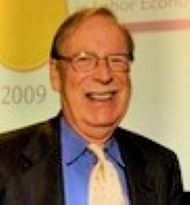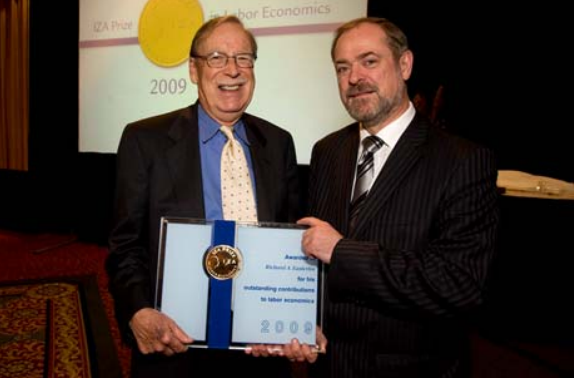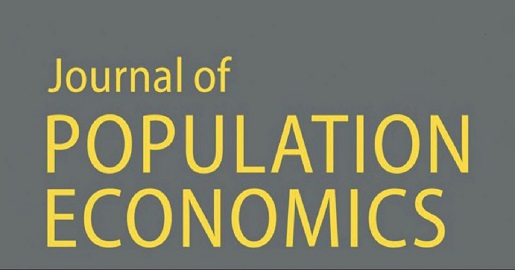GLO Fellow Richard A. Easterlin (University of Southern California), the intellectual giant of population economics, passed away at the age of 98 on December 16, 2024. Population economists will miss his spirit, inspiration, support, and friendship.

The Easterlin hypothesis is a theory of fertility preference formation, which suggests that fertility cycles depend on the changing aspirations of young people and intergenerational relative income across cohorts. The economic and social outcomes of a cohort are inversely correlated to its size. Easterlin attributes this to material aspirations formed during adolescence using parents’ economic outcomes as a benchmark. Large cohorts growing up in prosperous times develop high income aspirations, facing poorer prospects due to crowding in family, education, and labor markets. Larger cohorts often result in more siblings, thus diluting parental time and resources. Entry of large cohorts into the labor market leads to lower relative wages and higher unemployment. Consequently, such cohorts feel deprived and may exhibit lower birth rates, leading to smaller succeeding cohorts with lower material aspirations. This cohort size effect generates long-term fertility trends and shifts in labor and goods markets.
The Easterlin paradox explains why, contrary to expectations, happiness at the national level does not necessarily increase with income over time. While cross-sectional analyses within countries show that higher income correlates with greater happiness, time-series analyses reveal that economic growth does not necessarily increase happiness. Comparatively, when basic needs, such as clothing, nutrition, and housing are met, national income has little impact on happiness. Easterlin suggested that relative income and aspiration processes explain this paradox. Once basic needs are satisfied, further increases in absolute income do not enhance well-being, unless they improve one’s relative societal position. Additionally, a higher income often raises income and consumption aspirations.
Dick Easterlin has been an author (see (9) below) and long-term Associate Editor of the Journal of Population Economics. He has been the only person in the history of the journal who was honored by an interview (see (8) below with free PDF access). Over the decades, a huge amount of research related to his work has been published in the journal (see (6) and (7) as examples below).
Research by Richard Easterlin and Gary Becker were the major sources in my population economics class in my time as Associate Professor at the University of Pennsylvania in 1987.
During my tenure as Founding Director of IZA, I was chairing the IZA award committee deciding to honor Easterlin with the IZA Prize in 2009 and was co-editing his Oxford University Press prize book (see (4) and (5) below). The official 2009 IZA Prize Ceremony took place on October 22 in Washington, DC, where I met him last time in person. I remember the moving celebrations well.
The Journal of Population Economics has established a special collection of work on Wellbeing and Happiness and the Springer Nature Handbook of Labor, Human Resources and Population Economics has an own section on Welfare, Well-Being, Happiness to publish work in his tradition (see (2) and (3) below).
In 2022, Dick Easterlin co-authored a chapter on The Easterlin Paradox in the Handbook of Labor, Human Resources and Population Economics (see (1) below with free PDF access). This paper was GLO Discussion Paper No. 743, 2020.
With tremendous respect, we will always remember his path-breaking work and great personality.
Klaus F. Zimmermann
References:
- (1) Richard R. Easterlin and K.J. O’Connor (2022). The Easterlin Paradox. In: Zimmermann, K.F. (ed) Handbook of Labor, Human Resources and Population Economics. Springer, Cham. https://doi.org/10.1007/978-3-319-57365-6_184-2 Free PDF Access. Also GLO Discussion Paper No. 743, 2020.
- (2) Section Welfare, Well-Being, Happiness edited by Section Editor Milena Nikolova in the Handbook of Labor, Human Resources and Population Economics edited by K. F. Zimmermann.
- (3) Paper Collection Wellbeing and Happiness in the Journal of Population Economics.
- (4) Richard A. Easterlin (2010): Happiness, growth, and the life cycle. Edited by H. Hinte and K.F. Zimmermann, Oxford University Press. IZA Prize of 2009.
- (5) Richard Easterlin receives IZA Prize in Labor Economics. Journal of Population Economics (2010) 23:411–414. DOI 10.1007/s00148-009-0301-4
- (6) Yongil Jeon & Shields, M. (2005). The Easterlin hypothesis in the recent experience of higher-income OECD countries: A panel-data approach. Journal of Population Economics 18, 1–13 (2005). https://doi.org/10.1007/s00148-004-0190-5
- (7) Diane J. Macunovich (1998). Fertility and the Easterlin hypothesis: An assessment of the literature. 11, 53–111 (1998). https://doi.org/10.1007/s001480050058
- (8) Diane J. Macunovich (1997). A conversation with Richard Easterlin. Journal of Population Economics 10, 119–136 https://doi.org/10.1007/s001480050034 Free PDF Access.
- (9) Richard R. Easterlin, C. Macdonald & D.J. Macunovich (1990). How have American baby boomers fared? Earnings and economic well-being of young adults, 1964–1987. Journal of Population Economics 3, 277–290. https://doi.org/10.1007/BF00179337

Source: Richard Easterlin receives IZA Prize in Labor Economics. Journal of Population Economics (2010) 23:411–414. DOI 10.1007/s00148-009-0301-4, p. 411.

